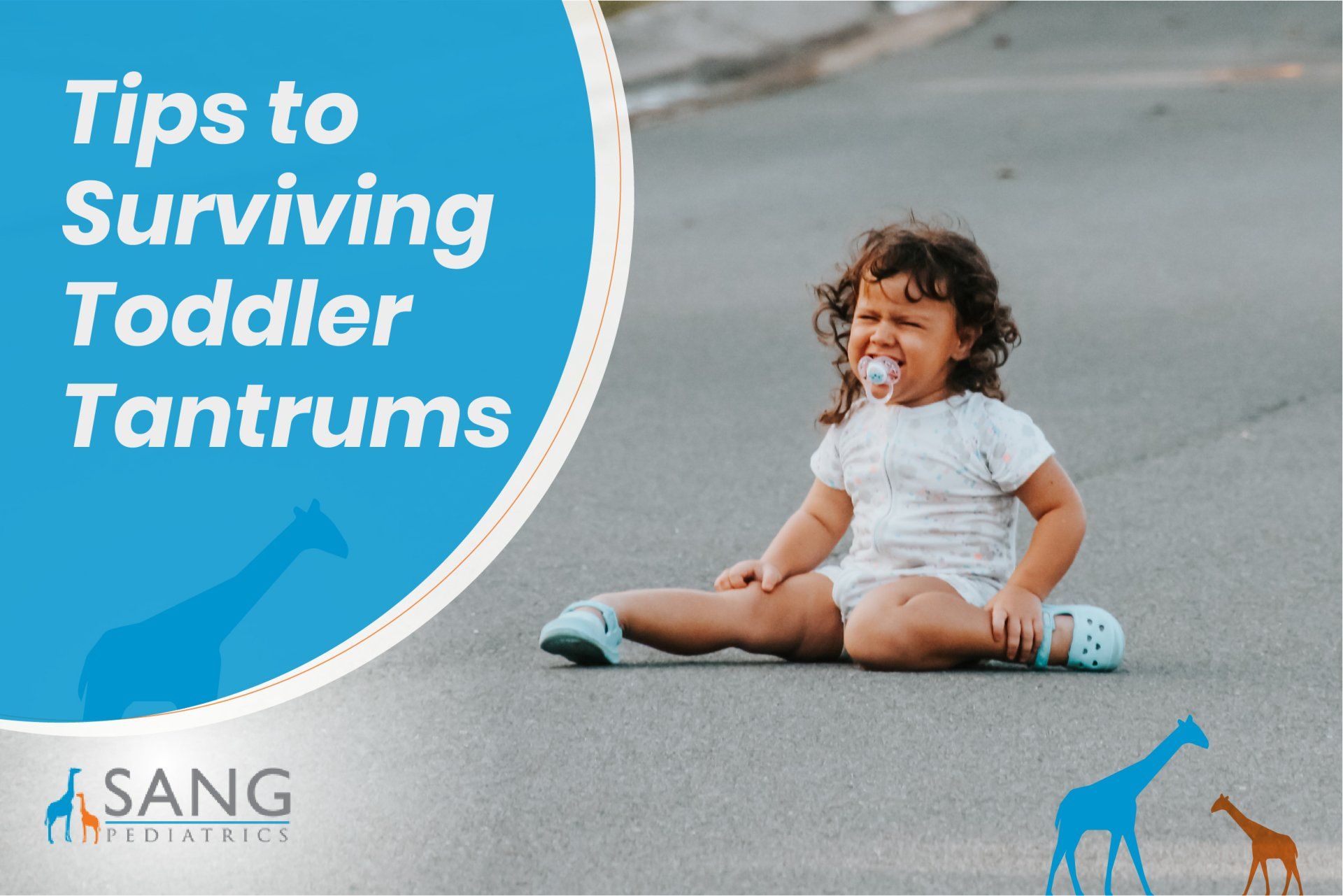It's a parent's nightmare. Your child is in a full-blown toddler tantrum, complete with crying, screaming, and flailing arms. For first-time parents, it's normal to feel helpless and even alarmed by these fits.
If you're reading this, chances are that you're the parent of a toddler who's at an age when temper tantrums are common. Toddler tantrums are no joke! But you don't have to just stand by and let your toddler's behavior remain unchecked. There are plenty of things you can do to avoid tantrums. In this article, you'll find tips on how to handle tantrums and when to be concerned.
Why Do Children Have Tantrums?
A tantrum is an intense reaction to frustration, anger, or disappointment. During this episode, the child displays strong emotions and may become physically aggressive, ranging from screaming and crying to kicking, hitting, or throwing themselves on the floor.
Most tantrums last only a few minutes and pass once the child gets what they want, they calm down. They can occur in public or private, in a toy store, in the car, or at home. Almost all children will have tantrums at some time in their lives. It's actually a pretty normal part of
child development. Tantrums are common among toddlers and preschoolers. The usual age for a child to begin having temper tantrums is between one and three years, although it varies from one child to another. Most children stop having them as they enter school, usually after the age of four. They are less common among older children, but they sometimes still have tantrums.
Specific situations or circumstances often trigger toddler tantrums. Children who don't yet have language skills to express their feelings might have more tantrums than other children do. On the other hand, even older children who can talk often will have a tantrum because they don't know how to express their feelings any other way.
Common causes for tantrums include:
- fatigue or hunger
- feeling uncomfortable
- experiencing significant changes, such as toilet training or starting daycare
- being over-stimulated by noise, crowds, or too many activities
- lack of sleep
- being unable to communicate wants and needs
- frustration about not being able to do or get something
- feeling powerless or out of control
- delayed or frustrated in reaching a goal
How to Deal with Tantrums
Toddler tantrums can be frustrating, but don't let them get the best of you. Keep in mind that it is a normal part of growing, but there are ways to help you deal with them! Here are helpful tips on how to handle tantrums.
Stay calm
Even though it might be difficult, try staying calm and remember that your child's tantrums are not personal. They express their frustration about not being able to meet their needs or not getting what they want. While it may seem impossible to keep your child cool when acting out, try to do so. Maintaining calm during tense situations will prevent an escalation.
Learn what triggers tantrums
It can be helpful to step back and examine a toddler's behavior from their perspective when they throw a tantrum that just won't stop. You can take steps to avoid meltdowns by finding out what triggers your toddler's tantrums. If your child gets upset with you every time you go to the grocery store because they want something, you can distract them, perhaps with a special toy or book.
Don't give in
When faced with tantrums, the best course of action is to ignore them. Please resist the temptation to give in to their demands, even if it will make them stop crying right then and there. This action reinforces the behavior and teaches them that throwing a tantrum is an effective way to get what they want. Accepting the tantrum will reinforce the behavior and make your child more likely to have another tantrum. It's okay if you've given in before -- just remember that every time is a fresh start!
Give your child some space
If you can do so safely, get out of the room while your child has a tantrum. This will give them some space to cool off. It will also prevent them from hurting themselves even more by falling or hitting their heads on something hard. You can also bring your child into another room if they're old enough to walk there on their own and tell them that they need to calm down before they come out again.
Try distraction
If your child is upset and crying because they dropped food on the ground, try to distract them right away with another activity such as pointing out to sceneries in the park or suggesting going on the slide at the playground. This might help divert their attention away from what is upsetting them.
Praise good behavior
Acknowledge good behavior - this isn't just "good parenting," it also helps your child feel loved and appreciated even without tantrums. Praise them for listening, being patient, and helping around the house. You reinforce the positive consequences of good behavior when you praise them. Apart from verbal praise, give your child a hug or a high five when they do well. That way, your child will learn that they can get attention without throwing a fit.
Talk about feelings
Sometimes children have tantrums because they don't know how to express their feelings of frustration. Educating your children about emotions can help them better understand themselves, thereby helping them avoid acting out in the future. Teach them to express their emotions in words. Listen attentively and let them identify the feeling for themselves, rather than labeling it as "good" or "bad.". Feelings are neither good nor bad - but how we express them is essential.
Handling Tantrums in Public Places
Find the best place to wait it out. Stay away from areas where there are other children or adults. Look for a quiet place where your child can't hurt themselves. Stay nearby but don't talk to your child until they calm down. You should not give in to your child's demands, but you should also not ignore them. If you need to get your child's attention, crouch down at their level, look at your child directly, and say their name before speaking. If the tantrum continues, tell your child that they will get what they want once the tantrum stops.
As soon as your child calms down, get down at eye level with your child, make eye contact, then calmly tell them what they need to do: "I know you're upset about having to wait, but hitting is not okay." Ask them to apologize for the behavior. Then you can explain that tantrums are not acceptable, such as explaining, "We don't throw toys around here," and suggesting a better way to handle anger: "Whenever you're angry, I want you to use your words."
See a Pediatrician If Tantrums Are Severe
Most children will "grow out" of tantrums as they develop better coping mechanisms and learn that acting out won't work. A tantrum can simply be an outburst, but others are violent enough to cause injury to the child or those around them. Tantrums that are frequent or severe can suggest an underlying condition (such as autism) that needs to be addressed.
If the tantrums are severe or extremely disruptive, talk with
our pediatrician or seek a referral for a behavioral evaluation. Call
Sang Pediatrics at (559) 268-1737 or book an appointment online.

















